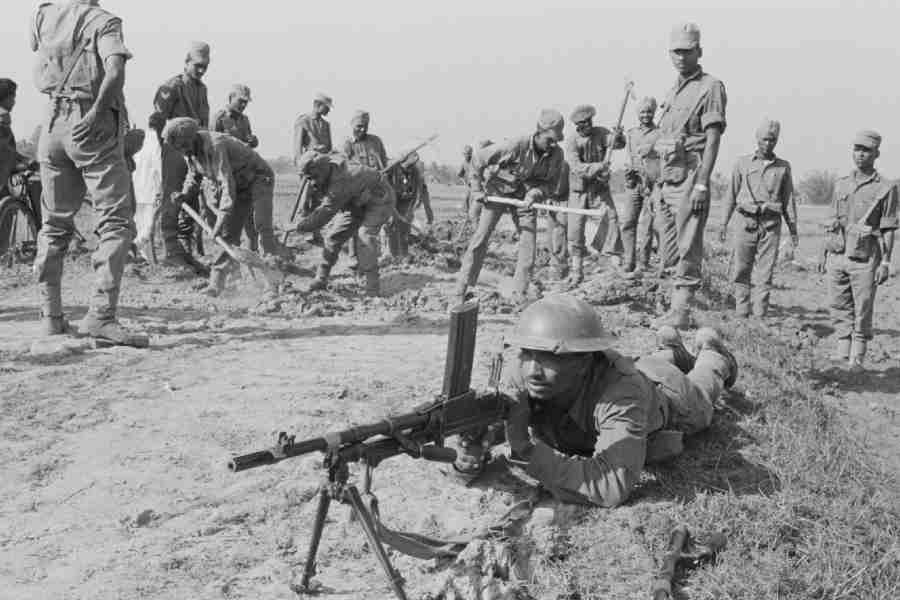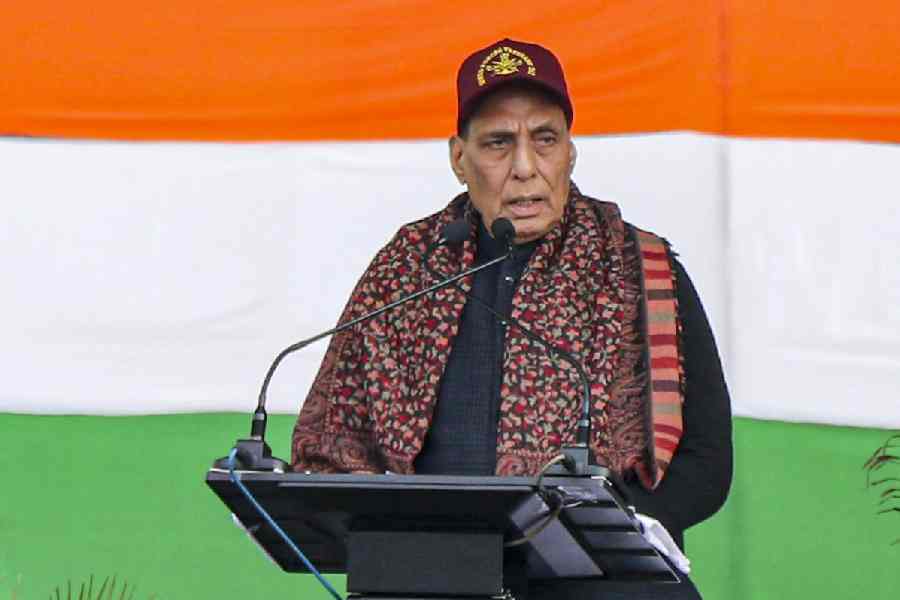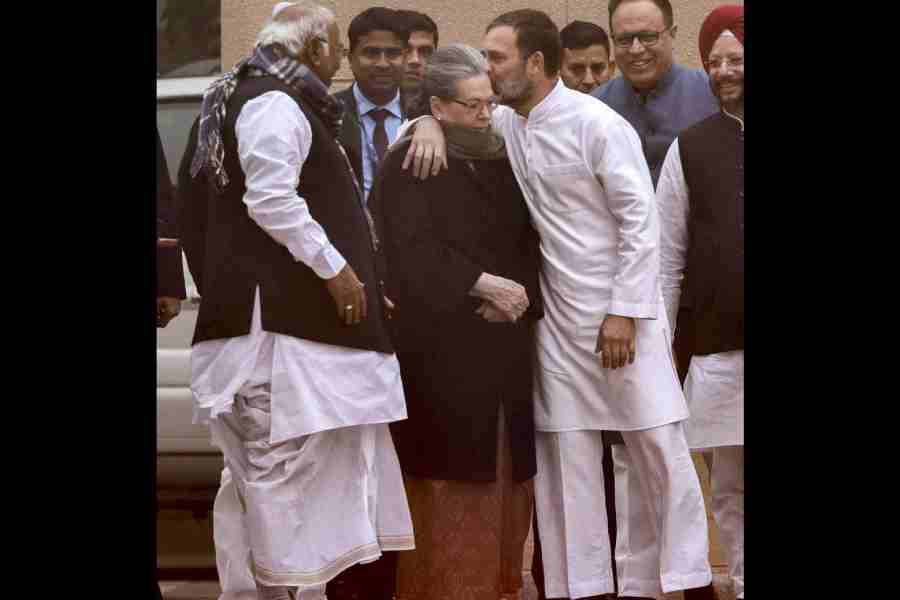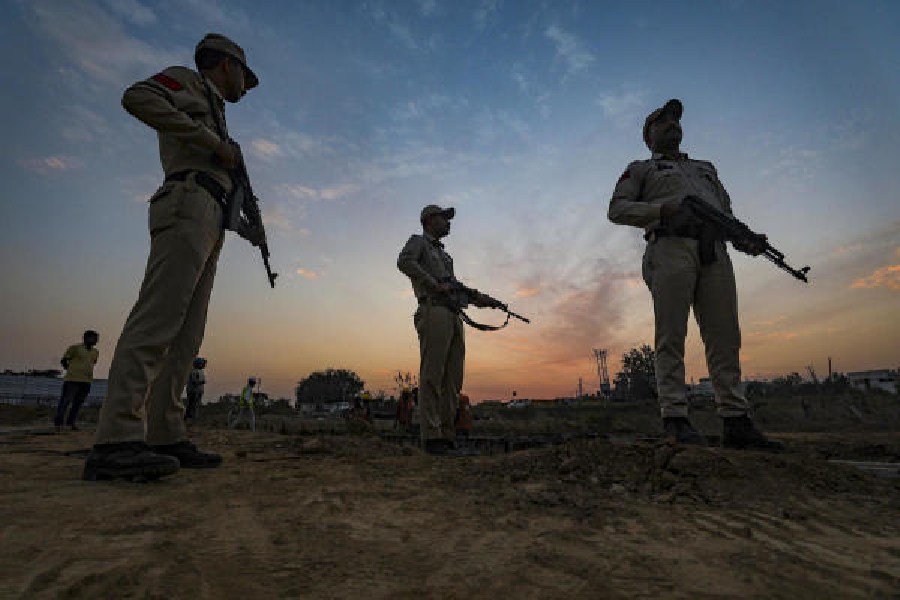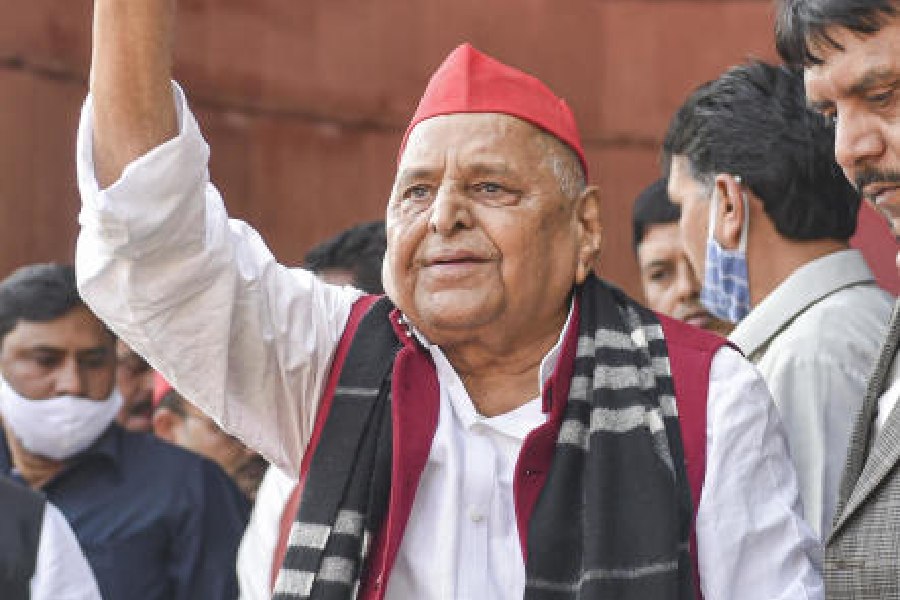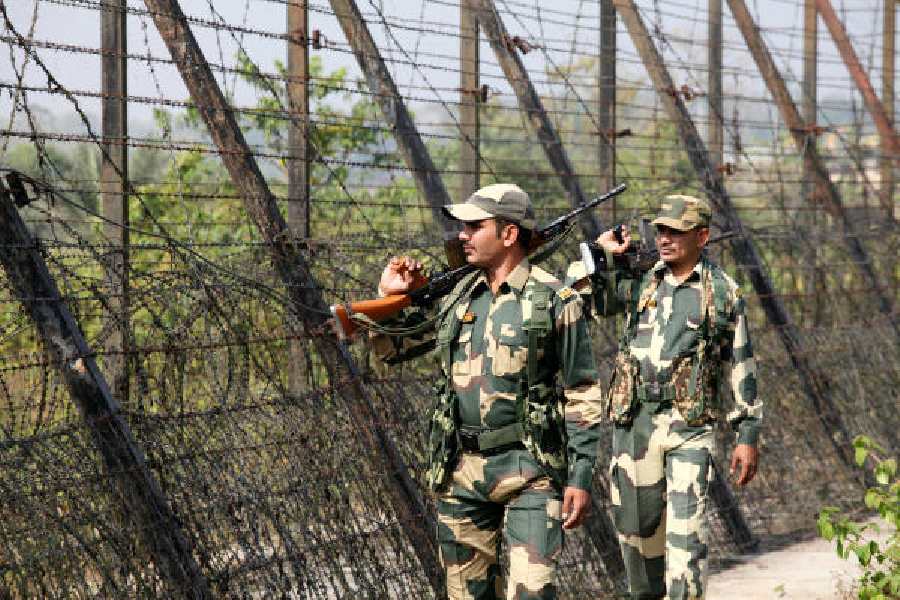The details of what triggered a face-off at several points along the international
border between India’s Border Security Force and the Border Guard Bangladesh will inevitably be contested. As tensions between the two countries escalate and move from flag meetings involving the commanders of border posts to diplomatic finger-wagging in Dhaka and Delhi, the breakdown of trust that began with the hasty departure of Sheikh Hasina Wazed on August 5, last year, is likely to get steadily worse.
As things stand, the moves by the BSF to implement an earlier agreement to instal barbed wire fencing along the border with Bangladesh are being opposed by villagers in Bangladesh with the support of the BGB. Part of this opposition stems from the desire of those involved in illicit border traffic in both goods and people to keep the supply channels undisturbed. The larger Bangladeshi narrative is, however, dominated by tales of a trigger-happy BSF and an overbearing Government of India that is yet to be reconciled to its eastern neighbour’s ‘second liberation’. The belief that a proud and assertive Bangladesh must show ‘big brother’ India its place is driving Dhaka’s grandstanding.
As of now, neither side wants the bilateral tensions to spiral out of control but given the growing bad blood, the possibility of accidents should never be entirely discounted. There are supporters of the Muhammad Yunus-led interim government who will not be displeased if the present Cold War between the two countries turns a few degrees warmer. It will harden burgeoning anti-India feelings, bolster the country’s Islamic identity, and cast the Yunus regime as
the true upholder of Bangladesh’s national interests.
The rapid deterioration of bilateral relations in just five months, after 15 years of perfect bonhomie, is striking. The brutal mishandling of the anti-quota stir organised by students was no doubt the immediate cause of the Wazed government’s downfall. But what contributed to the intensity of popular anger and the shift in focus from a specific grievance to a demand for regime change was the steady accumulation of rage. There was, first, the bitterness against the unchecked corruption and cronyism of Awami League functionaries. Secondly, there was the anger
over the derailment of democracy and three flawed parliamentary elections. Finally, there was a climate of fear caused by the heavy-handed persecution of political opponents.
It is noteworthy that all the shortcomings of the Wazed government were laid at the door of Delhi. It was made out that the Awami League government had opened the floodgates of Delhi’s unchecked economic exploitation of Bangladesh. In return, Delhi had accorded full political support to Wazed and her cronies to run the country as
a fiefdom.
The reality is, however, a little more complex and it must be remembered that the Wazed government had earned lavish praise from international agencies for taking Bangladeshis out of dire poverty. Curiously, at the same time, Bangladesh was the happy hunting ground for nearly every international aid organisation that brought in millions of dollars to bolster poverty alleviation programmes. How much of those initiatives helped create sustainable livelihoods for Bangladeshis and how much resources were expended in creating a network of political activists should warrant future investigations. It is noteworthy that a big section of the interim government is drawn from non-governmental organisations that received funding from the West. As Yunus’s brazen parade of his NGO-sponsored activists before the Clinton Foundation showed, Wazed was not wrong in identifying him as a focal point of destabilisation.
However, the importance of the activists Yunus insisted should be included in his government shouldn’t be over-emphasised. While they are useful interlocutors in discussions with visiting bleeding hearts from the West and levelling accusations of water theft against India, their political clout in post-Wazed Bangladesh is limited. They are, at best, ‘useful idiots’ in the service of forces hell-bent on changing the national identity of Bangladesh.
The destruction of the memorial of Bangabandhu Sheikh Mujibur Rahman in Dhaka’s Dhanmondi within hours of Wazed’s departure on August 5 was no spontaneous outburst. As with the destruction of nearly every memorial commemorating either Bangabandhu or the liberation war of 1971, there is now a concerted attempt to rewrite the history of Bangladesh. The steps to transform this revisionism into a new common sense are significant.
First, the uprising of 2024 is being described as the ‘second liberation’. Simultaneously, there is a conscious bid to remove all traces of the liberation of 1971 and herald 2024 as Year Zero. The most significant of these is the bid to junk the Constitution of 1972 and replace it with a document that reflects the impulses of the student activists. Initially, the student-politicians were supposed to unveil their alternative vision at the Shaheed Minar in Dhaka on the last day of 2024, but this was postponed. The postponement was inevitable because the July 2024 movement was driven by conflicting impulses. These range from the Bangladesh Nationalist Party’s belief that the interim government has no mandate to tamper with the Constitution to the Jamaat-e-Islami’s faith in a yet-undisclosed Islamic Bangladesh.
Secondly, along with negating the memory of the 1971 liberation, there is a move to re-evaluate India’s role in the defeat of the Pakistan army. It is being suggested that India had a walk-in role and the credit for the surrender of Lieutenant-General A.A.K. Niazi on December 16, 1971, belongs to the Mukti Bahini. This is a view of history favoured by the BNP that sees the contribution of Ziaur Rahman as being more significant than that of Mujib. Meanwhile, many of the fugitive assassins of Bangabandhu have resurfaced and are busy giving interviews justifying the murder.
Simultaneously, the JEI has not apologised for its role as the principal civilian backer of the Pakistan army in 1971. According to its recent pronouncements, the JEI was waging a battle against Indian expansionism and the conspiracy to undermine the Islamic solidarity of Pakistan. Major Shariful Haque Dalim, the Bangladesh army officer who announced Mujib’s killing on the radio on August 16, 1975, has gone to the extent of suggesting that the gruesome murder of intellectuals in Dhaka on two days before the Pakistani surrender was the handiwork of India.
The new revisionism in Bangladesh is certain to offend public memory in India. However, rather than react to the concocted history in rage, it is best to bear in mind that what is being attempted in Bangladesh is an Islamist counter-revolution. This must be countered and defeated with a combination of both guile and patience, but by the people of Bangladesh themselves. India can keep the flame of 1971 burning and facilitate its eventual return to Bangladesh.

